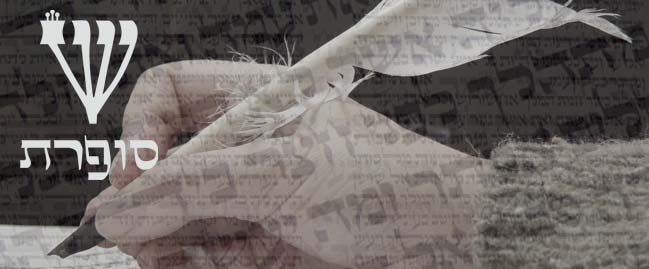EQUIPMENT
בס"ד
Ever notice how when people adopt a uniform, it's because they are voluntarily dehumanising themselves & offering to be utilised as a tool for some force outside themselves?
I'm serious: private schools, the military, various Jewish sects....each person in uniform (note the word - "one shape") was a sacred individual manifestation of G@d, & chose to sublimate their unique personalities & use their special gifts in service of a man-made philosophy, rather than in the service of G@d. From tzelem Eloqim, a shadow or image of G@d, to automaton.
Words for "uniform" in Hebrew include:
"Bigday serad" (survival clothes).
"Iqvi", the shoresh/root Ayin Quf Bet means follow, trace, track, polluted, & our favourite: cheat, as in our ancestor Ya'aqov. The same letters in a different order gives us "qavu'a", meaning fixed, designated, permanence, set, install.
"Zeyheh" translates as identical, or to identify the Self with an idea.
All these words indicate an inflexibility, an artificial barrier between the soul's potential & it's articulation. & perhaps a fear of one's true Self being too raw an expression of G@d.
So what is a uniform? Is it just soldier's garb, or is it a suit & tie, a shtreiml, maybe just long sleeves & skirts?
Can the ability of a uniform, whatever shape it takes, to bring together individuals always be for the greater good, or do participants all ultimately join the Borg & become faceless, soul-less tools?
When we submit to a uniform, are we still fulfilling G@d's intended singular purpose for our lives?
This idea of mine is still half-baked, obviously, so I'll stew in these questions meantime.
Tawk amongst yeselves.














4 Comments:
I'm taking ONE MINUTE off from sifrei Torah research (I know I owe you an email! I'll get there) to ask - Cohen Gadol has a uniform, but davka it's a uniform that he wears when he's in the service of God. Is there something special about a uniform prescribed by God? What about uniform modes of behaviour?
Right, back to the Beit Yosef.
בס"ד
Yay! I knew I could depend on you for intelligent engagement :)
True, the Kohen Gadol has a uniform prescribed by G@d just for him, & that's an interesting example you site, because:
1) G@d commanded him to wear it, so it's different from a military or other uniform I was sussing about in my post, which is human-prescribed.
2) He's the only one who wears it at any given time. So again, different from, say, Satmar garb, et al, as it cannot be used as a group-identifier.
So you've given an example of an exception to normative clothing-uniform rules, which I'm questioning. Let's expand on that...
...as far as the bigday Kohen Gadol being special, off the top of my head I would say that his requirement to wear shatnes (wool together with linen, prohibited to other Yidden) separates (QDSh) him from other Jews, as do the words on his turban, "Holy to G@D". In fact, that separates him from everybody!
Could you give specific examples of "uniform modes of behaviour"?
Ok, back to my Sefer Torah writing!
I went through public schools in the US and would've loved a "uniform" that would've reduced the "what to wear" and the "here's my income level" ...
I've been thinking about this topic a lot lately as hem lines and hair cover choices "mark me" ... yet I do find i'm mixing and matching ... but I am lazy (among other things, such as fibro) and having "uniform" i can put on every day and not think about makes life a lot easier...
However, it's more the uniform modes of behaviour which worry me.
You're right about the uniqueness of CG's uniform, I was sort of thinking that. It does group-identify him in a historical perspective, but historical perspectives aren't as dangerous, he can't club together with the others.
The other cohanim have some distinctive clothes, don't they? Like the bare feet. Do they wear white? I can't remember.
Uniform modes of behaviour - I was thinking cultural norms, you know "everybody does it this way, so if you're different you must be BAD."
Like when minhagim go crazy, and everyone *does* it because it's just what people *do*, and then they use that as an excuse for treating people really disgustingly. At school it was the fashion to have sport bags, for eg, and the kid with the satchel had such a hard time.
I liked school uniform too, though. It meant I didn't have to spend all my pocket money on brand name clothing to avoid getting teased, like my sister did. Plus it saved time in the morning :)
Post a Comment
<< Home